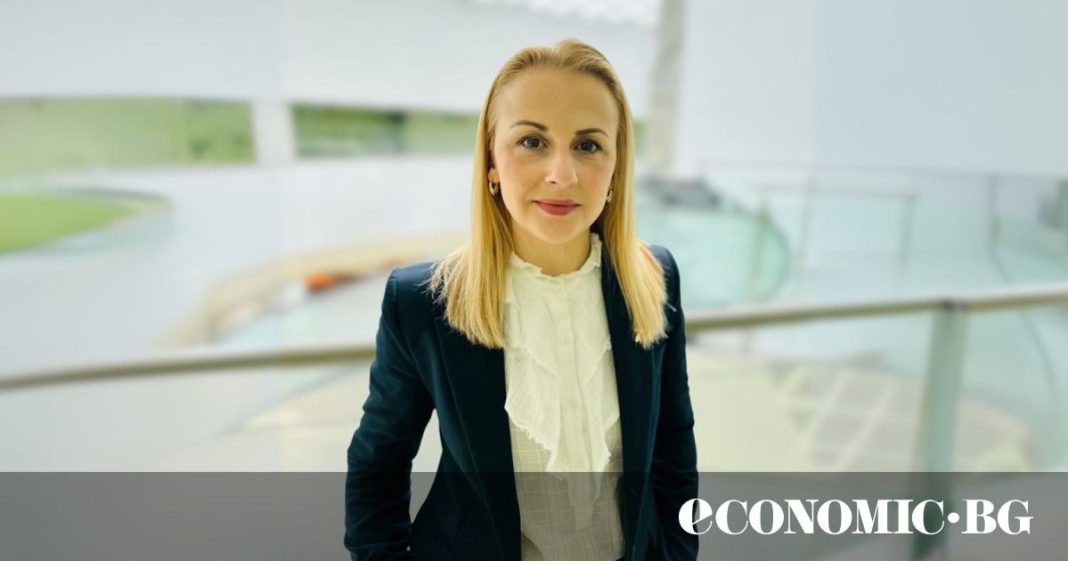Tanya Dimitrova is the Head of Administration at the Balkan Carbon Credit Registry AD (BCCR), where she manages key processes related to document flow, carbon credit traceability and coordination with partners. With many years of experience in administrative management, she ensures efficiency, transparency and compliance with regulatory requirements.
She is responsible for publishing information on sustainable projects, methodologies and standards, ensuring that stakeholders are informed. With her professionalism, commitment and attention to detail, Tanya Dimitrova ensures the effective management of administrative processes and the reliable operation of the register.
Ms. Dimitrova, what necessitated the creation of the Balkan Carbon Credit Registry (BCCR) and what role does it play in the context of the global voluntary carbon market?
The creation of the Balkan Carbon Credit Registry (BCCR) was prompted by the need to build an independent, transparent and accessible platform for registration and tracking of projects and carbon credits in Bulgaria. Up until now, there was no operating mechanism in our country that would provide a reliable infrastructure for the participation of Bulgarian projects in the voluntary carbon market.
The BCCR plays a key role as a connecting link between project developers, certification bodies, companies and regulators, providing security, traceability and avoidance of double counting. In this way, the registry creates real opportunities for the development of sustainable projects in Bulgaria, while ensuring that carbon credits issued here are reliable and comparable to those in leading international markets.
How does BCCR ensure compliance with global standards for the voluntary carbon credit market? Can you give us examples?
The BCCR is built in accordance with the principles of the voluntary carbon market, formulated by international institutions such as the Integrity Council for the Voluntary Carbon Market (ICVCM) and the Core Carbon Principles (CCP). Our platform applies international best practices for accountability and transparency, with each credit accompanied by a unique serial number that allows for full traceability.
An example of this is the registration of the first Bulgarian methodology for carbon agriculture, followed by the approval and publication of the first carbon credits generated under this methodology. This demonstrates that even at the regional level, mechanisms that are workable and fully compatible with global standards can be created.
Tell us more about the platform itself – how does it function and what services does it offer to users?
The BCCR functions as a digital platform that brings together the key functions of a modern carbon registry – project registration, issuance, transfer and withdrawal from circulation of carbon credits, as well as public accountability for all actions taken.
After going through a registration procedure, each user can introduce their project, which is subject to approval by the technical committee. After verification by an independent third party, carbon credits with unique serial numbers are issued for the project, which can be traded or used to offset emissions. Every movement of credits – transfer or withdrawal from circulation – is registered in the system, ensuring full traceability and preventing double-counting.
What are the main types of projects and organizations that are already benefiting from the Registry’s services? Are businesses showing interest in this?
To date, projects in the field of carbon agriculture, which use regenerative agricultural practices to capture and store carbon in the soil, have been registered in the BCCR. The main users of the platform are agricultural producers, project developers, as well as companies seeking sustainable ways to offset emissions.
Businesses are showing significant interest. Companies with ambitions in ESG management are now recognizing carbon credits as a tool not only for compensation but also for strategic positioning, especially in sectors such as food, energy and finance.
Could you explain what it means for the BCCR to be the “basis for a national carbon credit registry”? What would this mean for Bulgaria?
The BCCR has already been built as a working, secure and fully functional platform that covers the basic requirements for a national registry – from registration of projects and loans to accountability and transparency.
The recognition of the BCCR as an official national registry would allow Bulgaria to take a quick and effective step towards meeting future EU requirements, including integration into the single European registry envisaged within the CRCF. This would open the way for Bulgarian projects to access even wider markets and strengthen our country’s position as an active participant in European climate policy.
What are the challenges and opportunities in integrating the BCCR into the European initiative to create a single registry and the Carbon Removal Certification Framework (CRCF)?
The challenges are mainly related to the dynamism of legislative processes in the EU, as well as the need for harmonization of data, formats and standards between different national and private registries.
However, we see more opportunities than challenges. BCCR already applies principles that are fully consistent with the CRCF philosophy – reality, transparency, additionality and long-term carbon removals. Our goal is to position ourselves as a technically and institutionally ready partner in building the future European ecosystem.
What concrete steps are you taking to ensure that the BCCR will be in line with future EU regulations in the field of carbon removal and credit trading?
We work in several areas:
- Maintaining a constant dialogue with European institutions and experts to closely monitor the development of the CRCF;
- Updating internal processes and formats in accordance with the published draft delegated acts;
- Building technical compatibility of the platform, including options for API connectivity and data transfer to the future European registry.
How does the BCCR contribute to establishing Bulgaria as an active participant and leader in the region in terms of climate solutions and carbon practices?
The BCCR is the first and so far, the only registry in the region that creates conditions for Bulgarian and Balkan projects to enter the voluntary carbon market in full compliance with international standards. This puts Bulgaria in a position not of a catch-up but of a leader, especially in the field of innovative approaches such as soil carbon capture.
Our activity contributes to the positioning of the country as an important participant in the future European carbon market.
What would it mean for Bulgarian farmers, foresters and businesses if the BCCR were recognized as an official national registry?
The recognition of the Balkan Carbon Credit Registry (BCCR) as an official national registry would represent a significant breakthrough for the entire sustainable agriculture, forestry and related business sector in Bulgaria. It would mean that our country now has a legitimate and internationally recognized infrastructure through which farmers, producers and companies will be able to turn their sustainable practices into real economic value, with full transparency and compatibility with EU standards.
In practice, this will facilitate the participation of Bulgarian farmers and ranchers in carbon markets, without the need to seek out expensive foreign registries, platforms and intermediaries. They will be able to register their projects with the support of local support and administration teams, and under a clear regulatory framework, consistent with national legislation.
For businesses in general, the recognition of BCCR will bring greater clarity and predictability, especially in the context of future ESG reporting obligations and carbon neutrality. Companies will be able to demonstrate their commitment to sustainable practices through the use of high-quality and verifiable carbon credits registered at a national level.
In short, this would not just be administrative recognition but a strategic opportunity for hundreds of farms and companies in Bulgaria to become active participants in the fight against climate change, while simultaneously creating new revenue streams, building trust in their practices, and increasing their market value.
What’s next for BCCR in 2025? Do you have any new projects, partnerships or international initiatives in your plans?
2025 will be an extremely important and dynamic year for the Balkan Carbon Credit Registry (BCCR). Following the successful establishment of the platform and the registration of the first projects and carbon credits, the upcoming period will be marked by expanding the scope, upgrading technologies, and even closer integration with international mechanisms.
We plan to expand the scope of registered projects and are actively working to deepen partnerships with international organizations and certification bodies. We will place particular emphasis on the technological upgrade of the platform through the implementation of blockchain modules and process automation, which will increase efficiency, transparency and access for users.
Last but not least, we are working towards preparing for the future integration with the European Single Registry and the CRCF (Carbon Removal Certification Framework). We are closely monitoring the development of the regulatory framework and are already adapting the BRVC architecture to meet the expected requirements.
2025 will be a year of growth, connectivity and strategic positioning of the BCCR – not just as a registry, but as an institutional platform for climate solutions on a European scale.
In other words, the full potential of the platform is about to be unleashed so that BCCR can take a solid standing in the future European and global carbon infrastructure.
The interview was prepared with the assistance of the Balkan Carbon Credit Registry (BCCR).
Translated by Tzvetozar Vincent Iolov
Източник: Economic.bg


